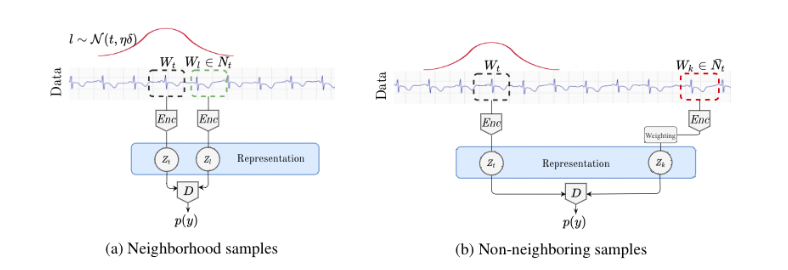Time series are often complex and rich in information, but sparsely labeled andtherefore challenging to model. TNC is a self-supervised framework for learning representations for complex, multivariate non-stationary time series. This repository contains the implementation of this framework based on the original paper
Experiments can be done on 3 different datasets. You can create the simulated dataset using the following script:
python data/simulated_data.py
For the ECG waveform dataset, you need to download the raw recordings from the Physionet website. The module data/afib_data.py will preprocess the data and annotations for you. Same for the Human Activity Recognition (HAR) dataset, download the dataset from UCR website and use data/HAR_data.py module to process the data.
To train the TNC encoder model, simply run:
python -m tnc.tnc --data <DATASET_NAME> --train --w <DEBIASING_WEIGHT>
You can also evaluate downstream classification performance and clusterability, as follows:
python -m evaluations.classification_test --data <DATASET_NAME>
python -m evaluations.clusterability --data <DATASET_NAME>
Note: If you are dealing with data with missing values, try manually setting the neighborhood range parameter instead of using the ADF test. The statstool implementation of this test requires fully observed timeseries.
Tonekaboni, S., Eytan, D. and Goldenberg, A., 2020, September. Unsupervised Representation Learning for Time Series with Temporal Neighborhood Coding. In International Conference on Learning Representations.
